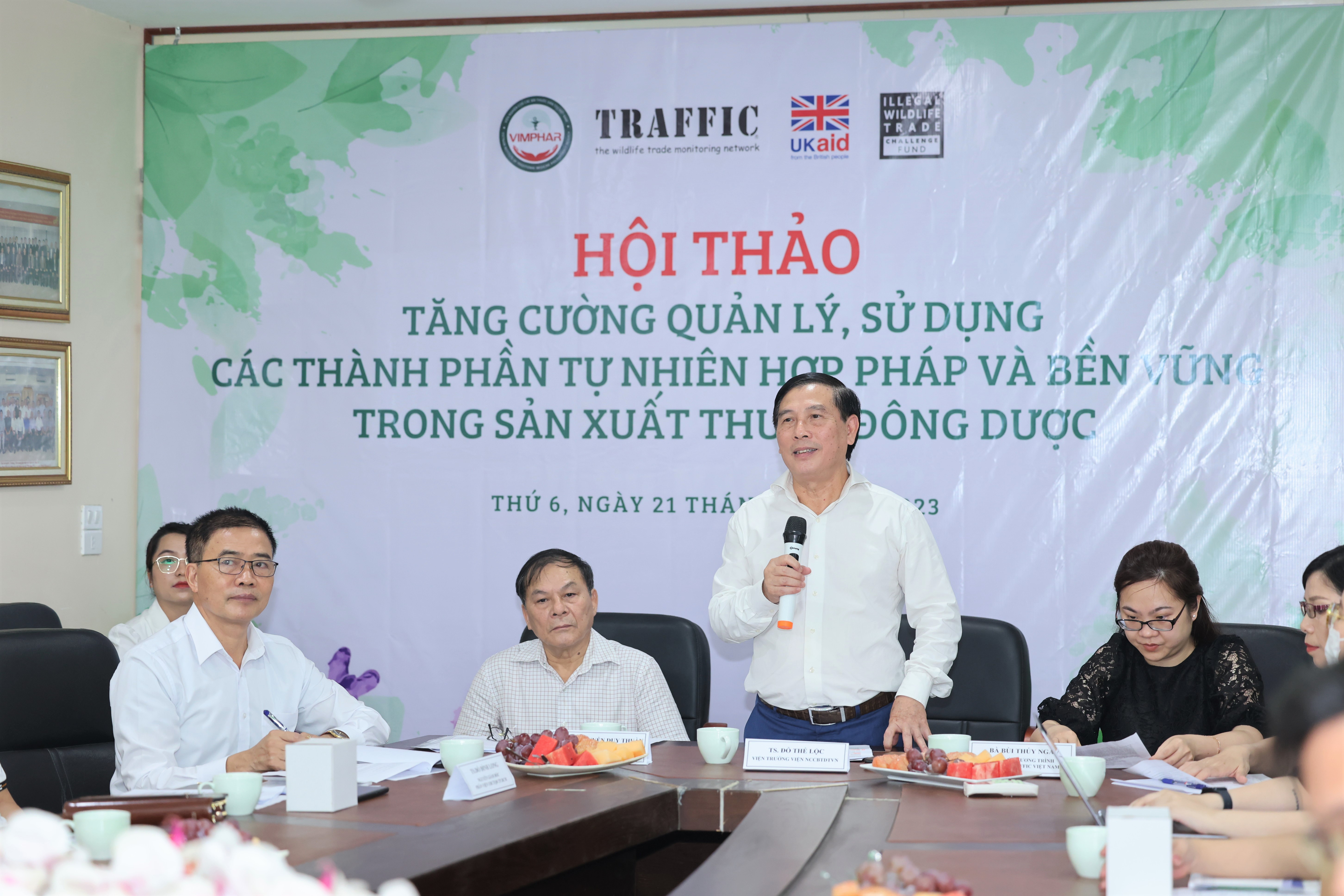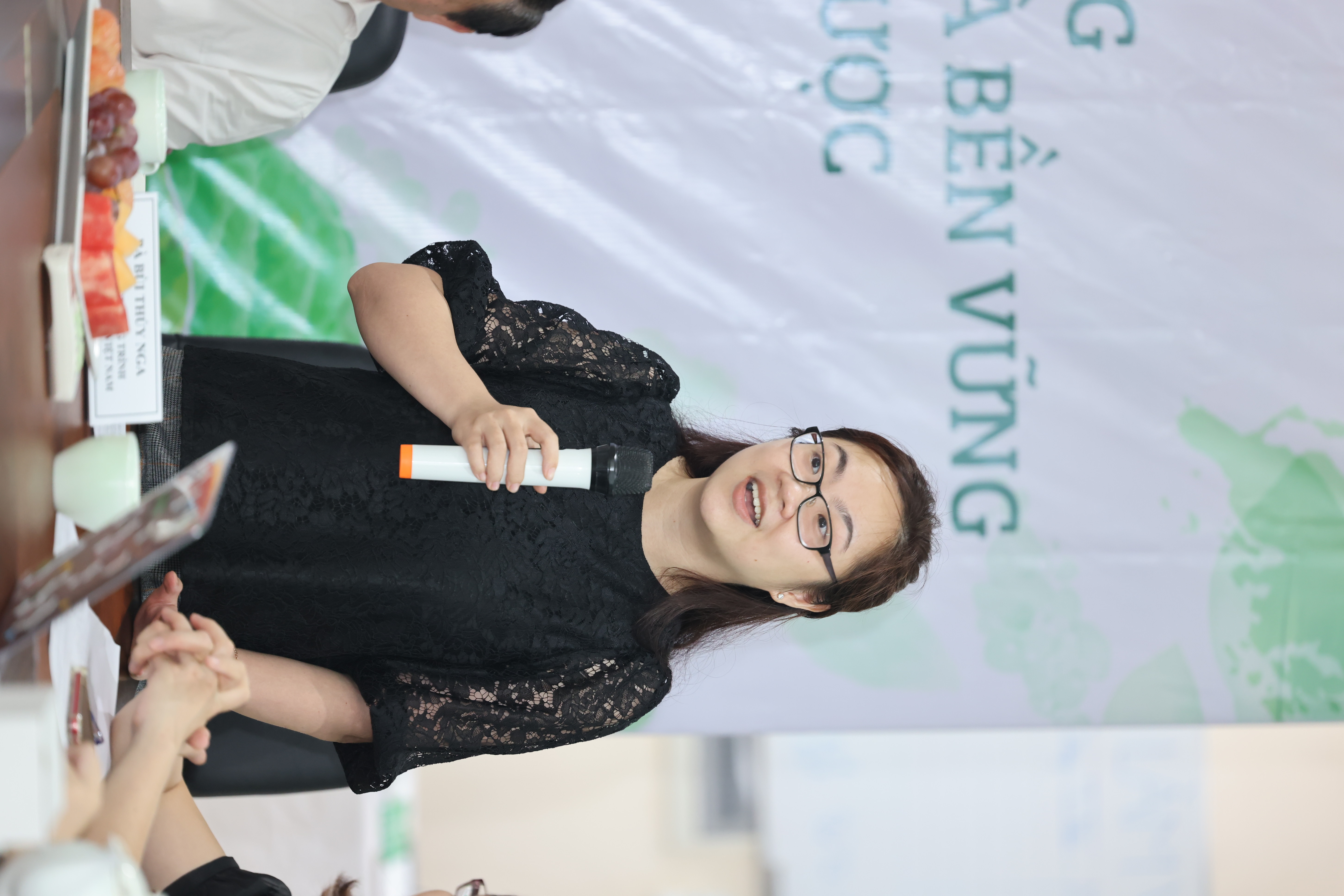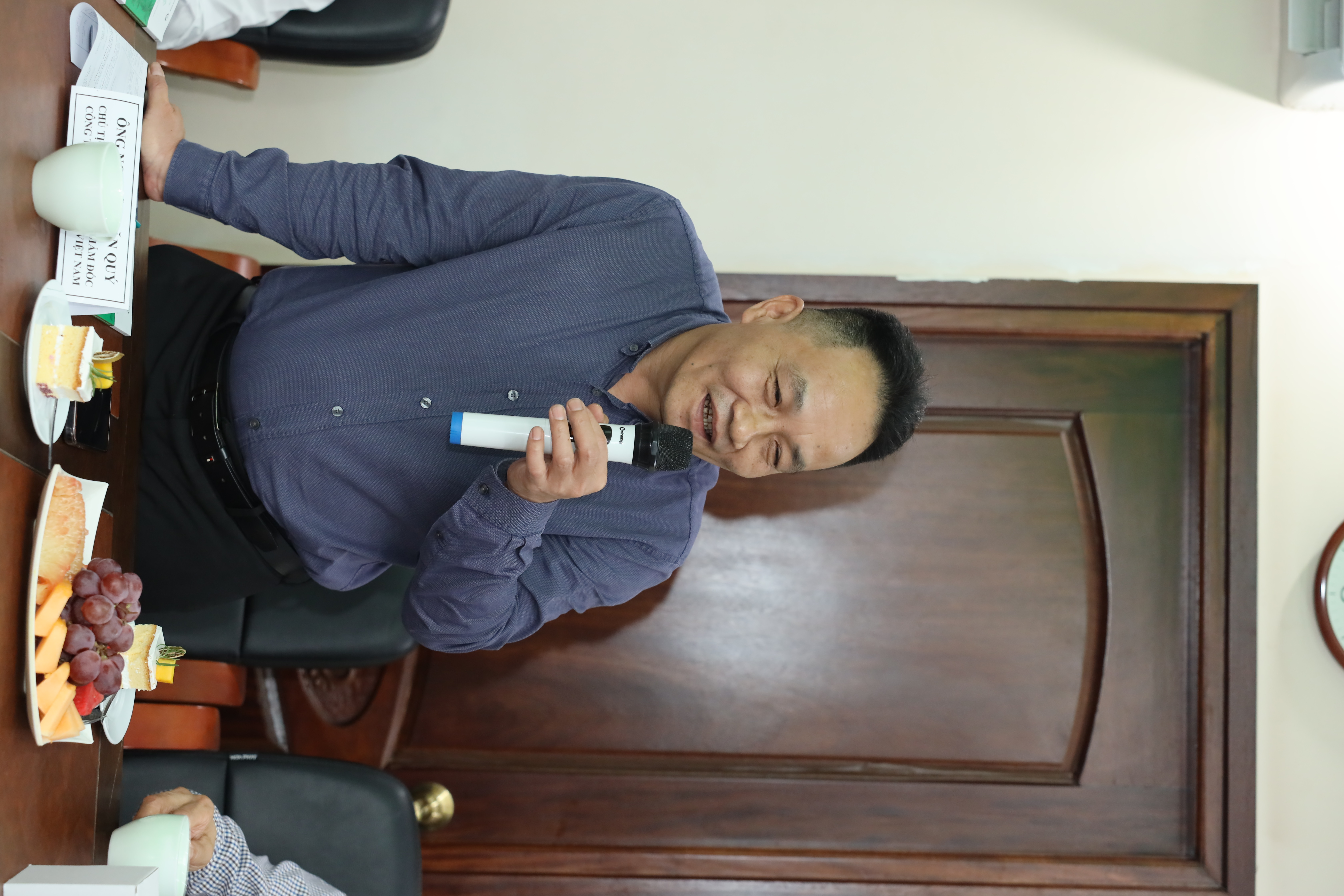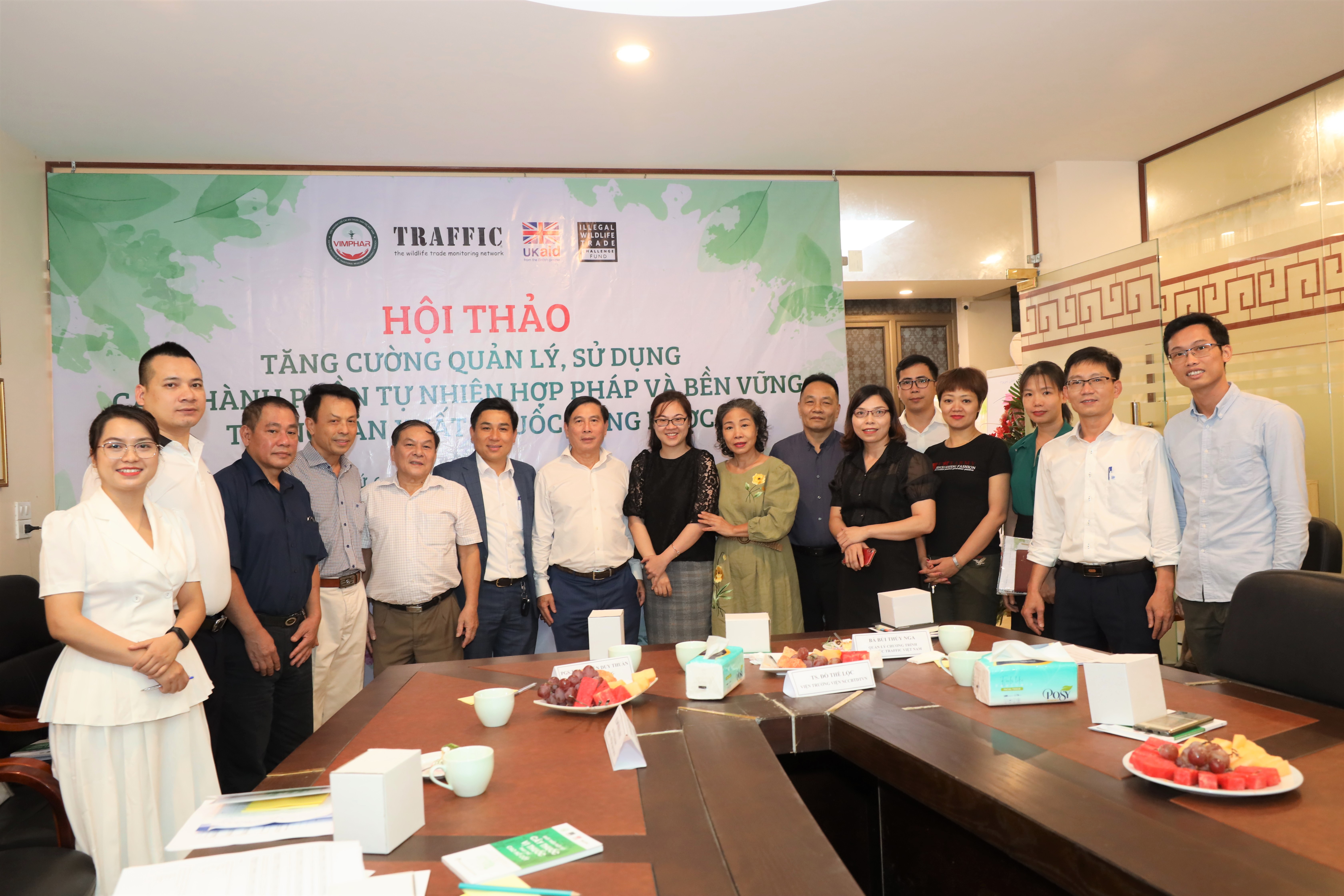Viet Nam traditional medicine and pharmaceutical companies reject illegal wild species-based ingredients and products
30 Vietnamese traditional medicine, healthcare and pharmaceutical companies are committed to stamping out illegal wild species ingredients in their manufacturing and selling traditional medicine (TM) on 21 July 2023.
The use of wild animals and plants as traditional remedies for medical purposes dates back millennia but is still deeply rooted in the Vietnamese socio-cultural and economic context. However, modern demand has grown to unsustainable levels, so pharmaceuticals and practitioners must play a crucial role in cutting out the use of newly-protected species products in the TM practice and looking to more sustainable sources.

Major General, Ph.D. People Doctor Do The Loc, Chairman of VIMPHAR
The workshop on 21 July 2023 , organised by TRAFFIC, the Institute of Vietnam Traditional Medicine Remedy Research (VIMPHAR) and SBC body Intelligentmedia, gathered 30 participants from TM and, healthcare and pharmaceutical companies to increase their knowledge, capacity, and commitment to stop producing or selling products containing illegal wild species ingredients.
Major General, Ph.D. People Doctor Do The Loc, Chairman of VIMPHAR said: “VIMPHAR realises its critical leadership role in the fight against IWT. As a captain of the industry ship, VIMPHAR will guide TM individuals to not prescribe illegal wildlife products in healthcare and disease treatment. The association continues engaging Vietnamese TM and pharmaceutical companies, inspiring more of them to pledge, and monitoring their activities for more sustainable, non-animal alternatives which will in turn help end the loss of endangered wild species.”
Over the last decade, TRAFFIC has focused on empowering Viet Nam’s TM authorities and practitioners to prescribe legal, sustainable, and safe ingredients. For example, guidebooks directing the use of certified, legal, and effective plant-based ingredients have cascaded through to TM companies, practitioners, and their patients.

Nga Thuy Bui, Senior Program Officer, TRAFFIC
Nga Thuy Bui, Senior Program Officer, TRAFFIC: “We have worked with the TM sector in Viet Nam to support its commitment to phase out the use of illegal wild species parts and products. Now, we are also supporting traditional medicine and pharmaceutical companies to change their policies and adopt wild species-friendly business practices, as they play a leading role in stopping the consumption of illegal wild species products.”
According to the National Institute of Medicinal Materials, Viet Nam has an abundance of 4,000 certified herbal plants , some of which are popular among Vietnamese. For instance, eclipta prostrate (cây nhọ nồi), used to treat fevers , Morinda officinalis (cây ba kích), used to help reduce the pain of Osteoarthritis , and Lactuca indica L. (bồ công anh) to promote lactation in women . This rich natural reservoir could potentially meet the demand for medicinal extracts, substances, and components, and be used as scientific herbal-based ingredients.
The workshop allowed participants to share their perspectives and discuss specific actions, including educating their staff and consumers about sustainable herbal alternatives.

Mr. Nguyen Van Quy, Chairman of the Board of Directors, General Director of Vietnam Pharmaceutical Chemistry Joint Stock Company
Mr. Nguyen Van Quy, Chairman of the Board of Directors, General Director of Vietnam Pharmaceutical Chemistry Joint Stock Company said: “This Workshop was a great reminder to increase the company’s social responsibility in protecting biodiversity and wild species. Vietnam Pharmaceutical Chemistry Joint Stock Company commits to producing and selling non-wild species products. We will start educating our staff and shifting the attitudes and behaviours of multiple stakeholders, including peers, business partners, and customers, to support wild species-free treatments and remedies.”

Organizing Board
The event featured the commitment of 10 companies and 2 institues not to use illegal wild species products and to integrate wild species-free principles into their company’s internal coaching agenda after the event. They also committed to disseminating behaviour change messaging on using legal, safe, and sustainable TM ingredients via their communication platforms.